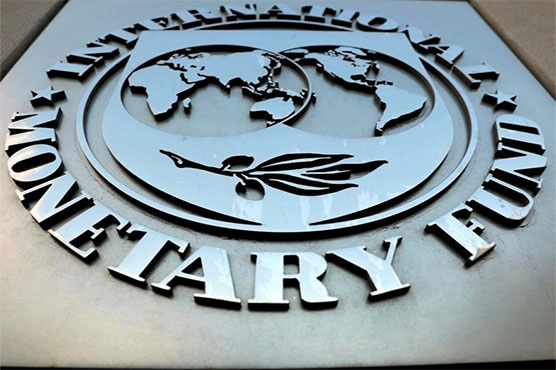IMF approves second tranche of $450m for Pakistan

The IMF said that Pakistan�s economic reform program is on track.
WASHINGTON (Dunya News) - The International Monetary Fund (IMF) on Thursday approved second tranche worth of $450 million for Pakistan under the $6 billion Extended Fund Facility in a meeting of its executive board in Washington, Dunya News reported.
The IMF said that Pakistan’s economic reform program is on track while decisive policy implementation by the Pakistani authorities is helping to preserve economic stability aiming to put the economy on the path of sustainable growth.
“Transition to a market-determined exchange rate has been orderly; inflation has started to stabilize, mitigating the impact on the most vulnerable groups of the population,” IMF said.
IMF said that the authorities remain committed to expanding the social safety nets, reducing poverty, and narrowing the gender gap.
The Executive Board of the International Monetary Fund (IMF) on Thursday completed the first review of Pakistan’s economic performance under the Extended Fund Facility (EFF). The completion of the review will allow the authorities to draw about US$ 452.4 million, bringing total disbursements to about US$ 1,440 million.

The Executive Board approved the 39-month, about $6 billion at the time of approval of the arrangement, or 210 percent of quota EFF for Pakistan on July 3, 2019.
Following the Executive Board’s decision, Mr. David Lipton, First Deputy Managing Director and Acting Chair, issued the following statement:
“Pakistan’s program is on track and has started to bear fruit. However, risks remain elevated. Strong ownership and steadfast reform implementation are critical to entrench macroeconomic stability and support robust and balanced growth.
“The authorities are committed to sustaining the progress on fiscal adjustment to place debt on a downward path. The planned reforms include strengthening tax revenue mobilization, including the elimination of tax exemptions and loopholes, and prudent expenditure policies. Preparations for a comprehensive tax policy reform should start early to ensure timely implementation. Enhanced social safety nets will help alleviate social costs and build support for reforms.
“The flexible, market-determined exchange rate remains essential to cushion the economy against external shocks and rebuild reserve buffers. The current monetary stance is appropriately tight and should only be eased once disinflation is firmly entrenched. Strengthening the State Bank of Pakistan’s autonomy and governance will support these efforts.
“Faster progress is needed to improve the AML/CFT framework, supported by technical assistance from the IMF and other capacity development providers. Swift adoption of all the necessary measures is needed to exit the FATF’s list of jurisdictions with AML/CFT deficiencies.
“The authorities have adopted a comprehensive plan to address the accumulation of arrears in the power sector. Its full implementation is key to improve collection, reduce losses, and enhance governance. Timely and regular adjustment of energy tariffs will bring the sector in line with cost recovery.
‘Efforts are ongoing to further improve the business environment, strengthen governance, and foster private sector investment. Reform of the state-owned enterprise sector will help put Pakistan’s public finances on a sustainable path and have positive spillovers by leveling the playing field and improving the provision of services.”

